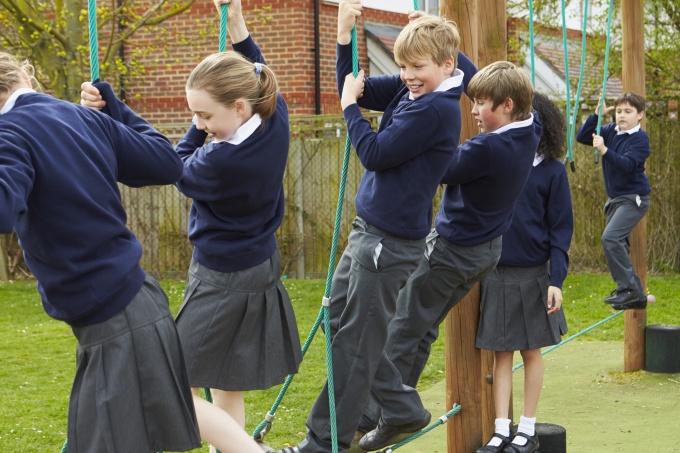Katie Parks, Thrive Lead and School Counsellor at Rose Lane Primary, explains how a whole school approach to mental health is helping the children she works with to manage the impact of the pandemic and the challenges of the cost-of-living crisis.
This article was featured on Headteacher Update.
Wellbeing is a central concern
I am a counsellor at Rose Lane Primary, a school of more than 690 pupils which serves a very underprivileged part of Barking and Dagenham local authority.
I have been in the education world for 30 years, mostly as a teacher. Nine years ago I retrained as a therapist, and I now head up wellbeing interventions and support teams here at the school.
A lot of our families are already on the breadline. It seems that the challenges endured by these families come in waves, each one more serious than the one before. First we had Covid and now we have the cost of living crisis.
Our children were really up against it during the pandemic, and we are still tackling the legacy of that today. When children returned to school this time last year, there was a real trend of children presenting as being angry. I felt that a lot of the pressures they had been feeling at home were manifesting through their behaviour when they returned to school. We are now readying ourselves to support these children through a similarly testing time this winter.
This is why the wellbeing of our pupils is a central concern. We want to ensure that we support them as much as we can and that we spot mental health issues early on.
Building emotional resilience
I am part of the senior leadership team and we work alongside a mental health support team with four trainee therapists, two supervisors and a senior clinical supervisor.
We have a team of teachers who are trained using the Thrive Approach, which is designed to help teachers and other education professionals to support children’s emotional and social development.
Our team experiences first-hand the positive impact this approach has on children. It is all about making the children feel special and meeting their needs. Everything we do is about building their emotional resilience so that they can better manage the ups and downs of life, improve their self-esteem, and inspire their natural curiosity for learning.
We have weekly inclusion meetings which involve all the key players including the mental health support team. We look at any concerns and issues with individual pupils and families across the school and discuss how we are going to support them.
Any high-level needs are discussed with the mental health support team and me as school counsellor. We do, of course, refer externally to services including CAMHS. However, as many of you will have experienced, it is often problematic to get a case to be taken by CAMHS, so that is where having staff who are training in how to support pupil wellbeing can be helpful.
.jpg)
We want our children to tell us how they are feeling. Children can absolutely be angry, but we want them to tell us they are angry, rather than behaving angrily.
Our teachers are able to give the children techniques of self-regulation and the language so that they can articulate how and why they feel the way they do. Recognising how they are feeling and wrapping language around that enables them to tell us when they need help and support and when they are not feeling safe.
Win-win
Several of my colleagues have been trained in a technique called WIN (wondering, imagining and noticing). This helps them to enter the child’s world, understand where they are coming from, and then help them to regulate their emotions.
To support this approach every classroom in school now has a calm area with tables and equipment. These include sand trays, visual breathing technique cards for children to use and sensory objects such as stress balls that children can pull, twist or squash to help them self-regulate.
When children need time out, they can go to these areas and with the support of a staff member use these resources and the techniques they have learned to understand, articulate and regulate their emotions so they can then return to their learning.
We have also brought in innovations such as soft starts, so as soon as children come into school at the start of the day they no longer have to line up. Now, the teacher greets them at the door and welcomes them into the classroom. One of the benefits of this approach is that it gives the teacher an opportunity to “check-in” with children and identify those who may need some additional support to settle.
Identifying wellbeing and mental health issues
The mental health lead role, training for which has been funded by the government (see below), is a really valuable addition to our school offer. If staff are concerned about children, they know there is support and advice and signposting to further resources and support.
Being proactive about identifying any wellbeing and mental health issues before they become a problem is a big part of what we do here. I carry out termly screenings across the school in which we assess each child against a set of criteria. This enables us to target and personalise our social and emotional support across the setting.
Positive impact on pupils and staff
Since we started our proactive programme to support the children’s wellbeing there has been a big impact. We have seen a drop in fixed-term exclusions of 73% and a significant reduction in referrals to external agencies.
As well as having a really positive impact on the children, the staff benefit too. They feel more supported and this gives them greater confidence in spotting and then working to address any wellbeing or mental health concerns.
.jpg)
Mental Health Lead training
Against a backdrop of skyrocketing mental health problems, teaching staff are increasingly called upon to act as psychotherapists and mental health workers – as well as inspirational educators. Yet schools and colleges often aren’t trained to understand and respond to the challenges young people are facing.
That’s why the DfE is offering a grant of £1,200 for eligible state-funded schools and colleges in England to start mental health lead training by 31st July 2023 – as long as they book onto a quality-assured course by 31st March.
Thrive’s fully-funded Mental Health Lead course costs £750 – leaving you with £450 of your £1,200 grant to spend in your setting. If you’re ready to join the many hundreds of schools and colleges benchmarking themselves against DfE and NHS guidelines – and armed with a mental health audit and a manageable action plan, click here to secure your place.
If you have questions about the course and your eligibility or would prefer to be coached through the grant application process by Thrive, schedule a Discovery Call with a member of the team.
Pass it on
Small actions can lead to a big ripple effect. If you enjoyed this post or found it helpful, please consider supporting us in our mission to help every child and young person feel safe, supported and ready to learn by sharing it using the social media buttons below.
Want to join a like-minded community of senior leaders and classroom staff benefitting from insights and strategies to improve attendance, behaviour and attainment? Add your email address below. (It’s easy to unsubscribe).

_680.jpg)

(7)_680.jpg)
_680.jpg)
